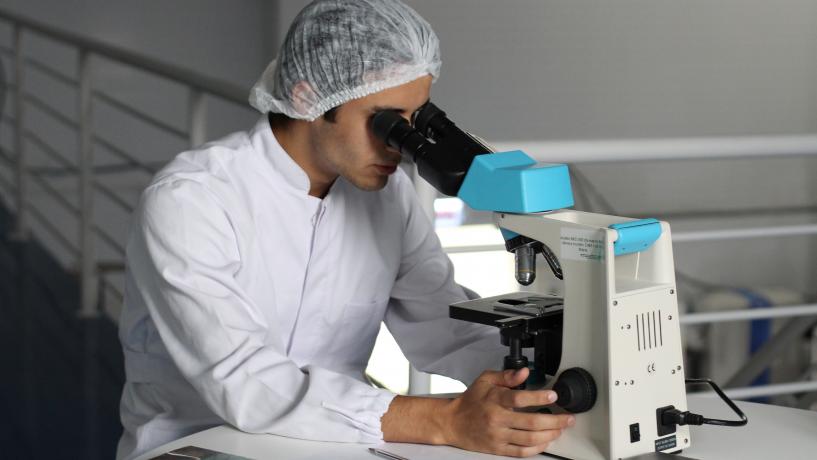
A new cell type that could stop allergies from developing in humans has been discovered by researchers at the Australian National University (ANU). The finding gives hope to the millions of Australians who suffer from a range of allergic conditions, from asthma to food allergies.
Allergies occur when the body’s immune system sees a harmless substance as a threat; it responds to the “threat” by producing antibodies. These antibodies, called Immunoglobulin E (IgE), trigger a chain of events that result in allergic reactions that range in severity from a runny nose to life-threatening anaphylaxis.
Knowing that there is a cell in mice that modulates IgE production, ANU PhD student and lead researcher Pablo F Canete suspected there may be a similar cell in humans. Because of their proximity to the back of the throat, Canete and his team expected to find a concentration of these cells (if any) in the tonsils.
“By carefully studying the tonsils of children undergoing routine tonsillectomies, we [were able to identify] a new cell type of the immune system that may help prevent allergies,” Canete told IFLScience.
“[Tonsils] are exposed to all sorts of molecules from food and air [that] an overactive immune system might see as dangerous,” said Canete. Among the tonsils studied, the higher the concentration of these cells, the lower the IgE; the lower the IgE levels, the less likely the children were to suffer from allergies.
He hopes the breakthrough discovery will lead to the development of alternative therapies for allergy control, likely through the identification and replication of the molecules the cells produce. “That's likely to be easier than boosting cell production,” said Canete.
However, he stressed, there’s still a lot of work to be done before that day, starting with the search to find the cells elsewhere in the body. “If we can find them in blood it will make our job much easier,” said Canete, citing the difficulty of obtaining tonsil samples and differences between the human cell and its mouse counterpart.
“The human cell [...] doesn't have the master gene regulator that exists in mice,” said Canete.
The research was conducted in the laboratory of Professor Carola Vinuesa at the John Curtin School of Medical Research and funded by the National Health and Medical Research Council (NHMRC). It comes at a time when one in five Australians suffer with allergic conditions — one of the highest rates of allergy in the developed world.
"This breakthrough could help to develop therapies that are more targeted," said Professor Carola Vinuesa, Co-Director for the Centre for Personalised Immunology at ANU.
"Instead of antihistamines, which help deal with allergic reactions, we could potentially modulate the immune system and stop the reaction before it even begins."
The results of the study, Regulatory roles of IL-10–producing human follicular T cells, have been published in the Journal of Experimental Medicine.




